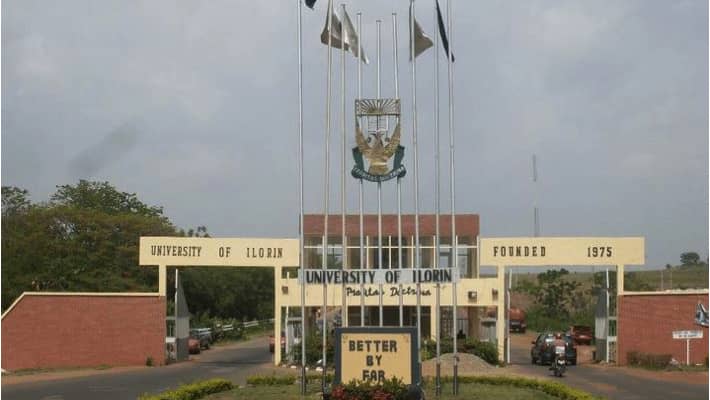The University of Ilorin (UNILORIN) has once again reaffirmed its reputation as one of Nigeria’s leading citadels of learning as it proudly graduates a total of 11,886 students at its 40th Convocation Ceremony, marking a major highlight of the institution’s Golden Jubilee Celebration.
This year’s convocation is not just a routine academic event—it’s a reflection of 50 years of academic excellence, innovation, and leadership in higher education across Nigeria and Africa.
🔔 A Historic Milestone for UNILORIN
The 2025 convocation ceremony is particularly symbolic as it coincides with UNILORIN’s 50th anniversary, a golden jubilee that showcases the university’s five decades of continuous progress, discipline, and distinction.
Speaking during the event, the Vice-Chancellor expressed deep pride in the institution’s achievements, noting that the ceremony represents “a golden moment in UNILORIN’s history—a celebration of excellence, resilience, and innovation that continues to define the Unilorin brand.”
🎓 Breakdown of the 2025 Graduating Class
A total of 11,886 students are set to receive degrees, diplomas, and certificates across various faculties and departments. Out of this figure, 316 students have achieved First Class Honours, underscoring UNILORIN’s academic rigor and the dedication of its scholars.
Below is the detailed classification of degrees awarded this year:
| Degree Classification | Number of Graduates |
|---|---|
| First Class Honours | 316 |
| Second Class Upper Division | 4,120 |
| Second Class Lower Division | 5,939 |
| Third Class Division | 1,078 |
| Pass Degree | 11 |
| Total Undergraduate Degrees | 11,464 |
Additionally, the university will confer 1,520 postgraduate degrees, comprising:
| Postgraduate Category | Number of Graduates |
|---|---|
| Postgraduate Diplomas | 182 |
| Academic Master’s Degrees | 916 |
| Professional Master’s Degrees | 188 |
| Doctor of Philosophy (Ph.D.) | 234 |
| Total Postgraduate Degrees | 1,520 |
This brings the overall total to an impressive 11,886 graduating students.
🏅 Excellence Across Faculties
The Vice-Chancellor praised the brilliant performances recorded across the various faculties, particularly the Faculty of Engineering, Faculty of Education, and the College of Health Sciences, which produced some of the highest numbers of First-Class graduates.
He emphasized that these achievements are the result of UNILORIN’s long-standing commitment to quality teaching, modern research practices, and an academic environment that promotes innovation, discipline, and moral excellence.
💰 Massive TETFund and NELFUND Support Strengthens UNILORIN’s Growth
The university also acknowledged the vital support received from government agencies and education partners that have contributed significantly to its infrastructural and academic development.
Through the Tertiary Education Trust Fund (TETFund), UNILORIN received a total of ₦2,560,562,362.66 under 11 different intervention areas to support infrastructure, ICT advancement, library development, and research capacity.
In addition, the institution benefited from:
- A ₦300 million Zonal Intervention Fund.
- A ₦4 billion Special High Impact Project Fund for the College of Health Sciences.
- A ₦750 million Hostel Construction Grant, aimed at improving student accommodation.
In line with the Federal Government’s renewed effort to ensure no student drops out due to financial constraints, UNILORIN also disclosed that it secured ₦1,596,716,864 under the Nigeria Education Loan Fund (NELFUND) to assist 12,983 students.
🏗️ Expanding Infrastructure and Academic Innovation
The Vice-Chancellor highlighted numerous ongoing projects on campus, including modern lecture theatres, hostel facilities, smart classrooms, and research laboratories designed to support the university’s 21st-century learning vision.
He further revealed that UNILORIN’s investment in ICT infrastructure has positioned it as one of the most digitally advanced universities in the country. The institution now operates several smart lecture halls, online learning platforms, and an upgraded e-library system accessible to students and staff alike.
🧑🎓 UNILORIN at 50: A Legacy of Discipline and Excellence
Founded in 1975, the University of Ilorin began with a modest number of students but has now grown into one of the most prestigious and sought-after institutions in Nigeria. Known for its stable academic calendar and commitment to maintaining zero tolerance for indiscipline, UNILORIN has produced generations of leaders across academia, industry, and public service.
The Vice-Chancellor noted that the 50th anniversary is not just a time for celebration but also a period of reflection on the university’s core values—Excellence, Integrity, Innovation, and Service to Humanity—which continue to guide every aspect of its operations.
🕊️ Looking Ahead: UNILORIN’s Vision for the Future
As the university celebrates its golden jubilee, the management reaffirmed its mission to expand global partnerships, enhance research output, and maintain its leadership position as a hub of innovation and development in Africa.
The Vice-Chancellor pledged continued investment in digital learning tools, renewable energy systems, and staff capacity-building initiatives that would ensure UNILORIN remains competitive in global education rankings.
He also expressed optimism that the next 50 years would bring even greater achievements for the university community, urging graduates to be ambassadors of excellence wherever they go.
✨ Conclusion
The 40th Convocation Ceremony of the University of Ilorin stands as a monumental event in Nigeria’s education history—celebrating not just academic success, but five decades of growth, resilience, and a relentless pursuit of excellence.
With over 11,886 graduates—including 316 first-class achievers—and monumental infrastructural strides supported by TETFund and NELFUND, UNILORIN continues to prove why it remains one of the most respected and forward-thinking universities in Africa.
As the Golden Jubilee unfolds, the institution’s story of discipline, quality, and innovation remains an inspiration to generations of Nigerian students and scholars worldwide.



